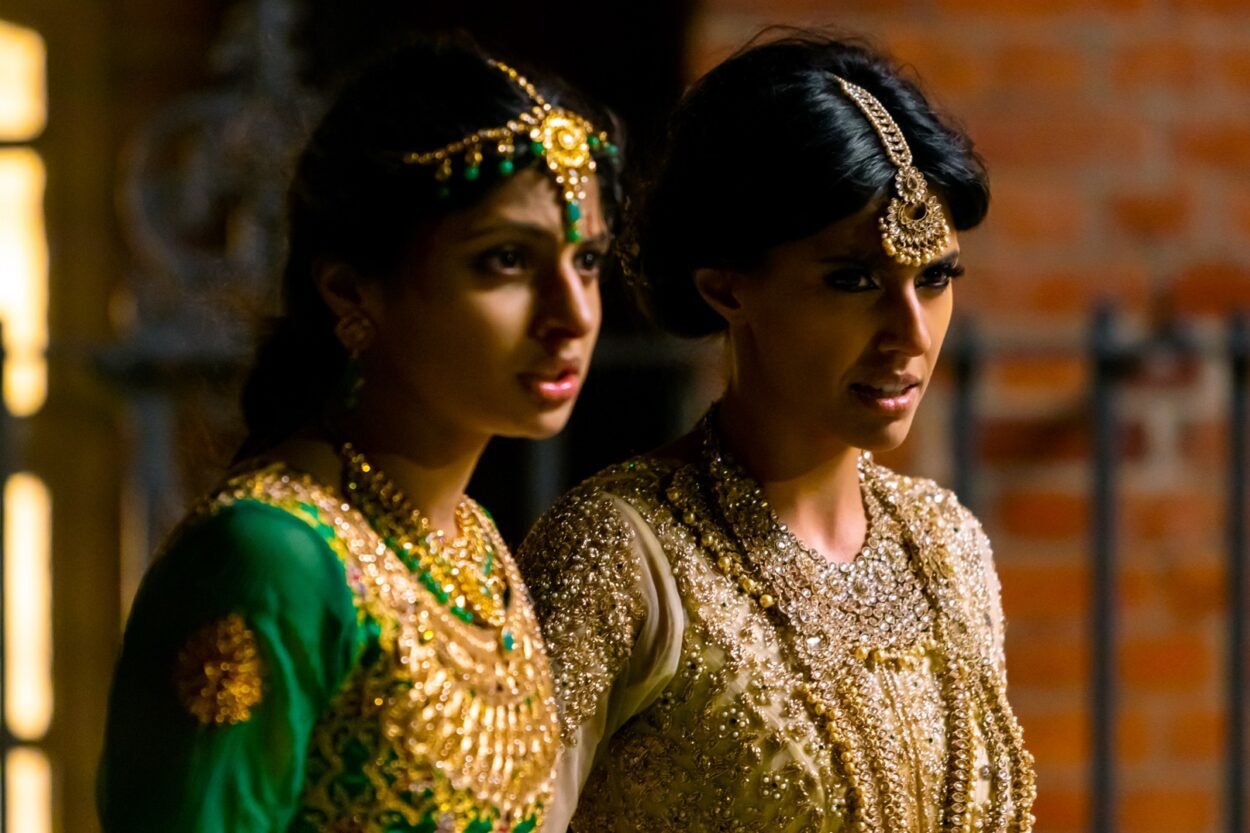“Polite Society” - Film Review
This review was originally posted on Film Obsessive.
It was a bit surreal to watch Polite Society on the day the news of the Twilight series reboot was announced. As always, Twitter was filled with people questioning why Hollywood is rebooting a franchise that ended in November 2012. Once again, the internet asked where all the original stories are and why they aren’t being given a real shot in theaters. Well, to all those people, look no further than Nida Manzoor’s Polite Society.
Ria (Priya Kansara) dreams of becoming a stuntwoman and trains after school with karate classes. She often involves her older sister Lena (Ritu Arya) to be her cameraperson so Ria can have new content for her YouTube channel. Lena is a recent college art-school dropout who’s feeling listless and without a purpose, believing that she’s not talented enough as an artist to “make it.” Her biggest cheerleader is Ria, and when Lena meets a charming, attractive doctor named Salim (Akshay Khanna), Ria is convinced his intentions are devious. Ria and her two best friends (Seraphina Beh and Ella Bruccoleri) take it upon themselves to expose the nefarious secrets of Salim and his mother (Nimra Bucha).
Photo: courtesy Focus Features © 2023.
Mix the chaos of Derry Girls with the flashy heist action of Ocean’s Eleven and the frenetic energy of Edgar Wright and you’re halfway to Polite Society. Those who have discovered Manzoor’s We Are Lady Parts on Peacock will be unsurprised at how easily her style translates to the big screen. It’s delightful to see the new playground Manzoor has created—aggressively goofy and overwhelmingly sincere. The film is broken into chapters, each with a fight scene featuring Ria and an adversary. She fights her school bully (Shona Babayemi), her sister, Salim’s mom, and, in the final chapter, an entire wedding party. These fight sequences are shot with a reverence for the stunt performers whose work is often underappreciated. At the same time, these scenes are uproariously charming, with a magical realism that flows through the film. When Ria and her opponents square up to begin their face-offs, there’s the caw of an eagle, as if the film has been transported back in time to a Western shootout. One almost expects a tumbleweed to roll across the frame as Ria stares down her adversaries.
Polite Society is an energetic teenage romp with action sequences that rival the best of them. Salim’s mother invites Ria into her massive mansion under the guise of a relaxing spa day. In reality, it’s a torture sequence, but one that squeamish audience members can surely handle. Salim’s mom’s method of torture? Waxing Ria’s legs. That scene perfectly explains the tone of Polite Society. It takes itself extraordinarily seriously in its absurdity, which is the reason the twist late at the end of the second act works so well. In another movie, the reveal of Salim and his mother’s intentions would be groan-inducing. In Polite Society, it’s simply the most logical progression as the film keeps one-upping itself.
Photo: courtesy Focus Features © 2023.
Like Manzoor’s We Are Lady Parts, Polite Society’s central love story is a platonic one. In this film, it’s a sisterly love between Ria and Lena. Their bickering is immediately familiar to those who grew up with a sibling close in age. However, it’s not enough for the writing to be spot-on, it’s the delivery that fully sells it. The way they trade jabs and words of love in the same sentence, both with equal sincerity. Kansara and Arya have impeccable timing and create a relationship that could easily be mistaken for real-life siblings. The same admiration of timing can be extended to Beh and Bruccoleri as Ria’s pals. The three of them exist on a planet all their own, and their friendship speaks to the ride-or-die nature of teenage friendships. One of them can say that they think their sister’s boyfriend is a villain and the other two will don disguises to steal his laptop from his gym locker. Lovingly bickering all the while.
More than merely charming and humorous, Polite Society wears a heart of gold proudly on its sleeve. The film’s central themes are about independence, bodily autonomy, and familial expectations. Woven through the fight sequences are moments of heartfelt reflection about the struggles of imposter syndrome, the weight of family, and the ability to stand up for oneself. None of those quieter moments feels out of place, and instead add an undercurrent to what Ria is fighting for. She’s fighting for her sister, but Ria is also fighting for herself. She believes that she has a future ahead of her that is of her own choosing and not the path everyone seems to be pushing her on.
Polite Society is just the beginning for Manzoor, and the opportunity to experience the arrival of a new talent on the big screen is thrilling. The film is extraordinarily polished for a debut feature film, and the team she’s assembled around her is filled with exciting rising talents. The film is ambitious and audacious, filled to bursting with love and sisterhood. Manzoor’s likely inspirations are easy enough to pick out, but they don’t distract from the film’s sense of singularity. Polite Society is excitedly, unashamedly, and proudly one of a kind.
Follow me on BlueSky, Instagram, Letterboxd, & YouTube. Check out Movies with My Dad, a new podcast recorded on the car ride home from the movies.


